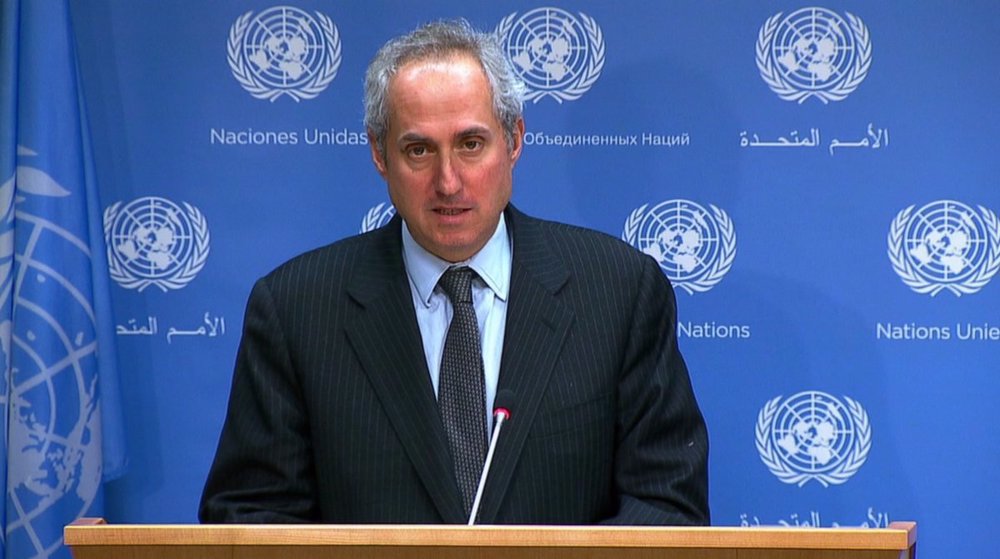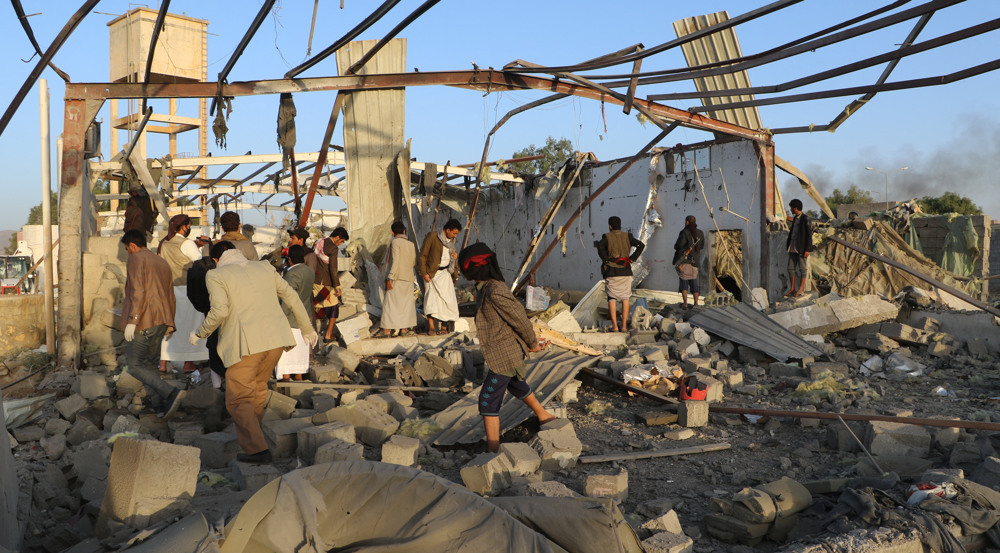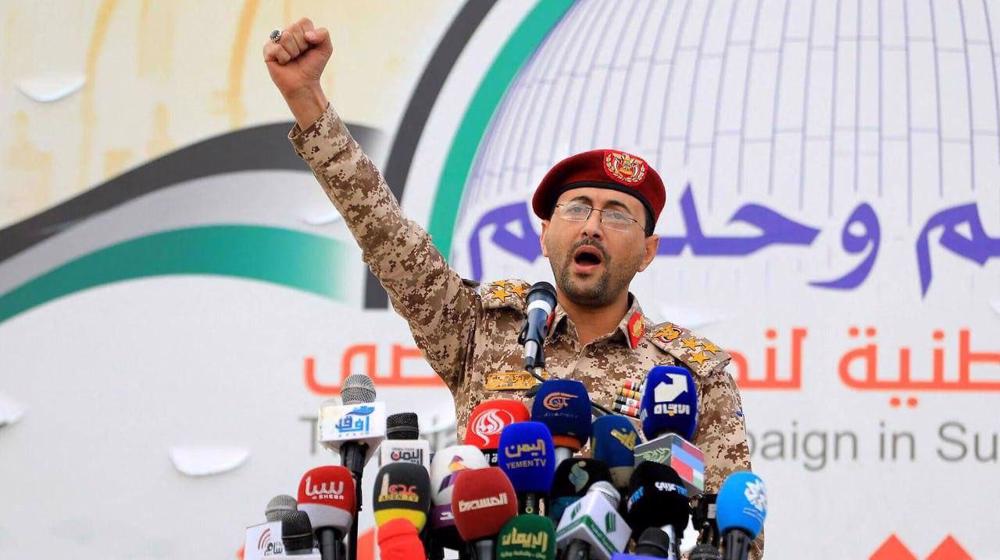UN says Yemen deal close as dozen killed in Saudi airstrikes
At least a dozen civilians are killed in Saudi airstrikes in northern Yemen as the UN envoy says warring parties are closer to agreement at peace talks in Kuwait.
"We are moving towards a general understanding that encompasses the expectations and visions of the parties," Ismail Ould Cheikh Ahmed said in a statement Wednesday.
Ould Cheikh Ahmed was to brief the UN Security Council in a closed session later in the day on the progress made in the peace talks which began on April 21.
The apparent progress comes after the Saudi-backed side said on Monday that it stood ready to make concessions to Houthis and their allies.
The main sticking point in the talks has been the form of government to oversee a transition.
Houthis and their allies have demanded a unity government but the Saudi-backed side insists that former president Abd Rabbuh Mansur Hadi should take the reins.
The Saudi side has also demanded that Houthis withdraw from the capital and other territory which they have been controlling since 2014.
The Houthis and their allies have demanded the formation of a consensus transitional government before forging ahead with other issues.
Hadi is being propped up by Saudi Arabia and some of its regional allies, notably the UAE, which have deployed troops to Yemen amid airstrikes pounding the country on a daily basis.
On Wednesday, Saudi warplanes carried out fresh airstrikes on residential areas in the northern al-Jawf province, killing six people and wounding eight others.
Six other civilians, including children, were killed and four others injured in the southern province of Lahij in separate Saudi airstrikes.

Sources close to the Houthi delegation accused Saudi Arabia of violating the ceasefire.
The delegation met late Tuesday with the ambassadors to Yemen of the US, Britain and the EU and called for the formation of a "consensus executive authority" in Yemen.
Houthi spokesman Mohammed Abdulsalam warned that if no fair solution is reached, the group will form the government in Sana'a.
"Yemenis are awaiting a fair solution and if it fails, anti-aggression national forces must fill the vacuum by forming a government to serve the people and confront challenges," Abdulsalam said on Twitter.
The AFP news agency quoted an unnamed Western diplomat as saying that the UN envoy has proposed a "National Salvation Government."
The proposed government "would only replace the current government once Sana'a and key government institutions are not under the control of non-state actors," he said.
That means Hadi would function as the de facto president until Houthis left the capital.
The port city of Aden currently serves as Hadi's temporary capital which has turned into a hub for Daesh and other Takfiri groups.
On Monday, a car bombing claimed by Daesh killed at least 40 Hadi recruits and wounded 60 in Aden.
The Chatham House think tank warned on Wednesday that current UN-backed attempts to end Yemen’s conflict are too simplistic.
In a hard-hitting report, it warned that any agreement struck would lead to the "big war" dissolving into a series of mini-conflicts and push the country toward a "chaos state."
The report said those most likely to gain from spiraling chaos in Yemen were terrorist groups including al-Qaeda militants and Daesh Takfiris which have gained a foothold amid Saudi airstrikes.
Al-Qaeda, it added, is already “one of the biggest winners" of the Saudi aggression against its southern neighbor.
The terrorists, it said, are "expanding territorially while continuing the process of rebranding itself as a local alternative to the Hadi government or the Houthis.”

UN: US strikes in Yemen pose growing risk to civilians

Iran condemns deadly US attacks on Yemen as ‘war crime’, blasts international silence

Yemen strikes US aircraft carrier, Israeli target in reprisal for deadly attacks
UN: US strikes in Yemen pose growing risk to civilians
VIDEO | Iran economic diplomacy
Iran mulls buying oil from Azerbaijan amid warming ties: Report
Israeli settlers storm al-Aqsa Mosque amid intensified West Bank raids
Canadians take to the polls as Trump renews US takeover push
Israel uses new 'Bar' guided rockets in Gaza genocide as death toll surges
Iran condemns deadly US attacks on Yemen as ‘war crime’, blasts international silence
Hague court upholds verdict favoring Iranian banks in Bahrain case







 This makes it easy to access the Press TV website
This makes it easy to access the Press TV website